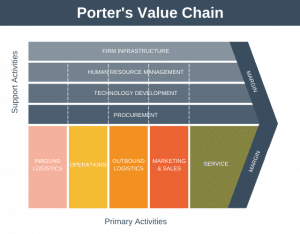In this article we will look at the main benefits of outsourcing along with some common outsourcing related terms, which may be of interest if you are managing a business unit or program. We will not be looking at the process by which an outsourcing initiative should be managed. Let’s start by examining exactly at what outsourcing is.
What is Outsourcing
Outsourcing is basically the contracting out of a business function to a third-party. Typically the third-party is an external organization, and the business function was previously performed in-house. As such, it is typical that there is a contract put in place to cover the exchange of goods and services for financial payments.
Benefits of Outsourcing
There are a number of benefits to outsourcing, including:
1. Focus on Core Business
All businesses need to perform multiple finctions in order to operate successfully. However, every business will have only a subset of these functions strategically differentiating the business from others, which are core to the businesses success and survival. By outsourcing those components which are non-core and consuming resources, an organization can free up resources to focus on strategically important core initiatives and functions.
2. Risk Mitigation
By outsourcing non-core functions to an expert in that area of service or product delivery you reduce the risk of issues and/or lack of continuity in that area. This risk mitigation can be made explicit by including penalties for the third party should they fail to provide their product or service to the agree standard.
3. Cost Savings
Economies of scale often enable the third-party to provide their product or service more economically than the company itself can. Additionally, any capital investment necessary to improve the internal function can be avoided altogether.
4. Improved Customer Satisfaction / Improved Employee Satisfaction
Through the third-party providing and improving upon functions previously performed poorly internally, overall customer satisfaction can be improved. This same logic can be applied to services geared towards employees that were previously provided internally.
5. Operational Control / Flexibility
Non-core functions with seasonal or cyclical demands can be outsourced allowing you to bring in extra resource when you need it and release it when you don’t, as required.
6. Staff Related Benefits
By using a third-party for non-core functions there can be a number of skills related benefits including, retaining staff as the mundane non-core work is outsourced thus keeping them interested, providing access to specialist skills through the third-party, and any investment in skills will directly impact core business functions as this is where employees are engaged.
Common Outsourcing Terms
Here are some common terms related to outsourcing that you need to know:
Application Service Provider (ASP): these are companies than rent services/applications via the internet, for example, payroll processing.
Competitive Insourcing: here internal teams engage in the bidding process alongside external bidders to win the contract to supply the services or products in question.
Co-sourcing: here a business function is provided using a combination of internal and external resources, for example, a service might be provided by a third-party complemented with the specialist internal business knowledge of internal resources.
Facilities Management: here the management of a facility itself (building) is provided by a third-party.
Farshoring: refers to outsourcing to a third-party who operates in a non-neighbouring time-zone, and is not readily accessible during working hours, requiring a long-haul flight to visit their operations.
Insourcing: this is where an outsourced function is transferred back in-house to be provided entirely by internal employees. It is the opposite of outsourcing.
Nearshoring: This refers to outsourcing to a third-party within a neighbouring time-zone, accessible readily during normal working hours, and no more than a short haul journey away.
Offshoring: refers to outsourcing in a separate territory/country.
Service Level Agreement (SLA): this will be specified in the contract, and will specify the quality requirements around the service/products being provided (downtime, tolerance levels etc).
Shared Services: this refers to outsourcing a function which exists within various parts of an organization to a highly specialized internal provider of that function, for example, purchasing might be needed in many parts of an organization and as such would make an ideal candidate for a shared service.
Summary
From a project or program management perspective, this article has provided a number of reasons (benefits) why you might want to consider outsourcing an internal function – primarily because that function is not part of your core business. In addition to the benefits of outsourcing, the article provides a glossary of common outsourcing terms.










